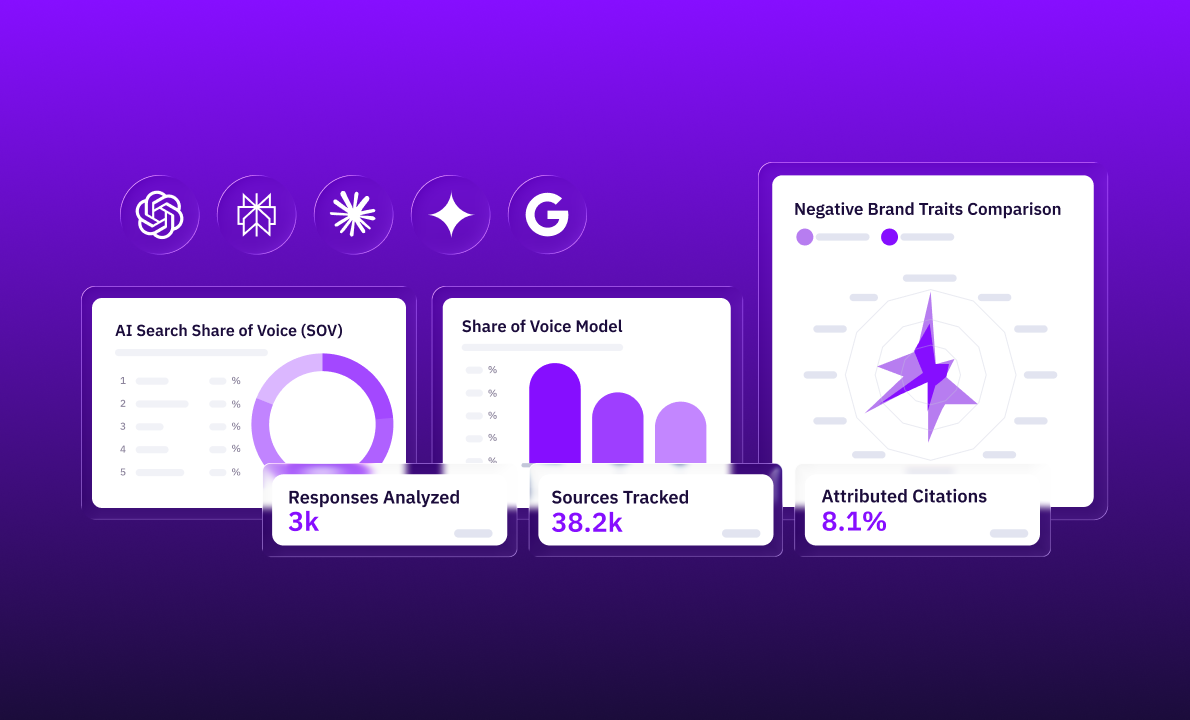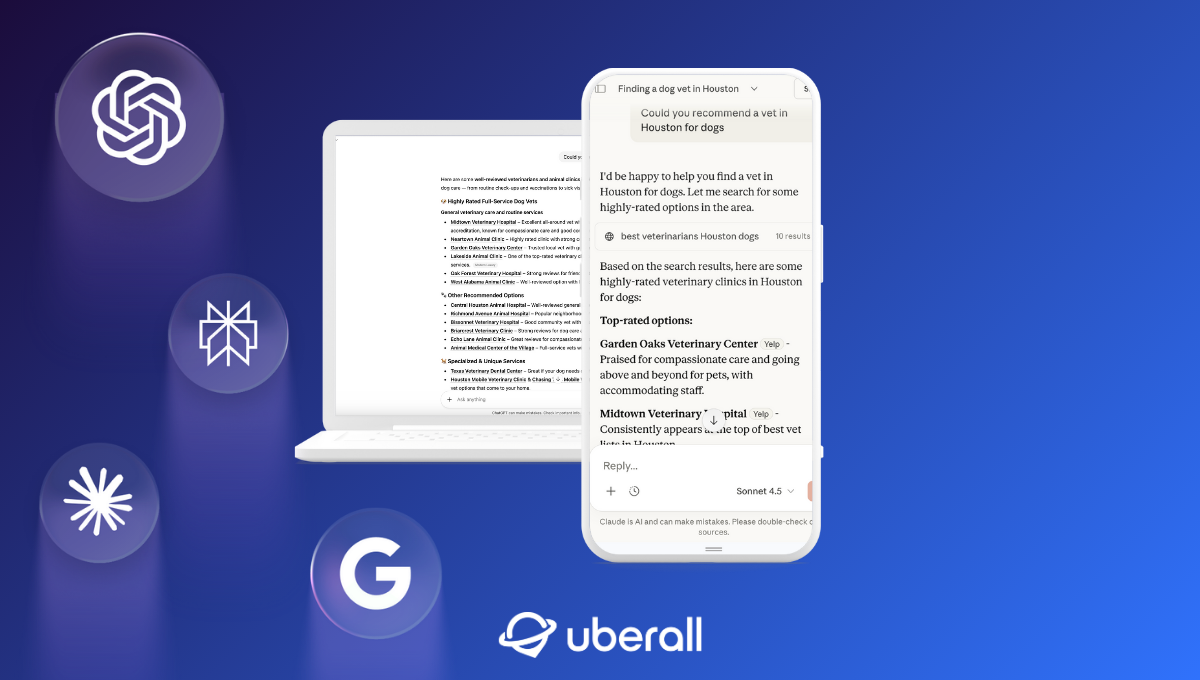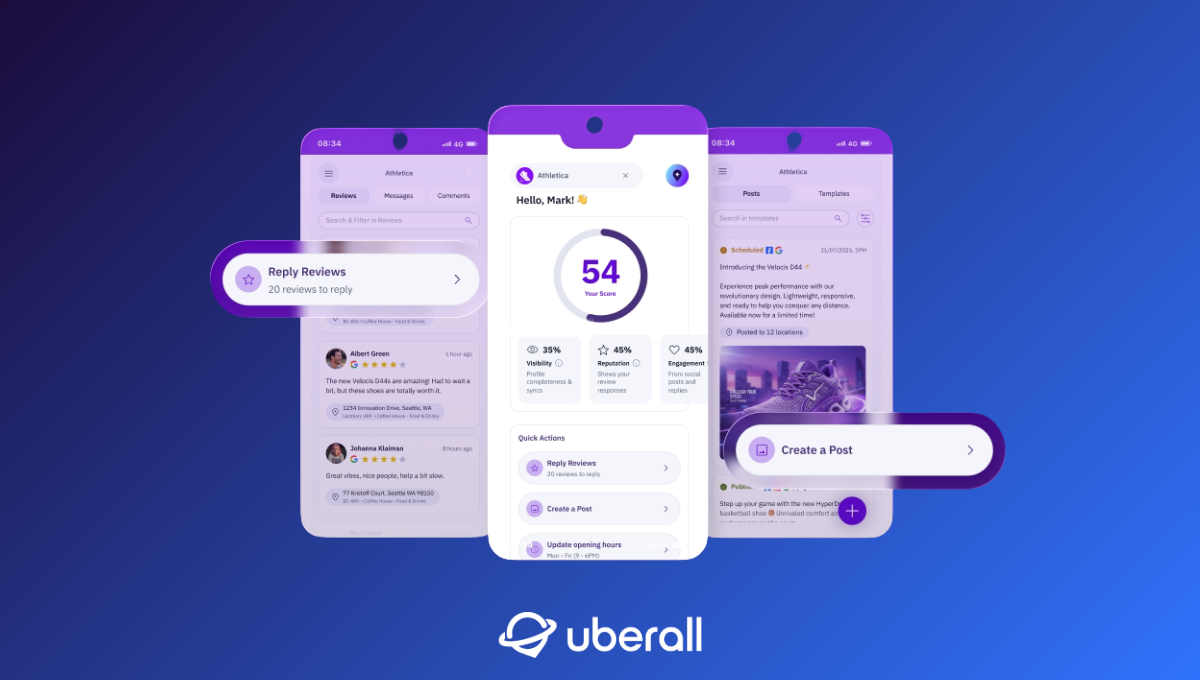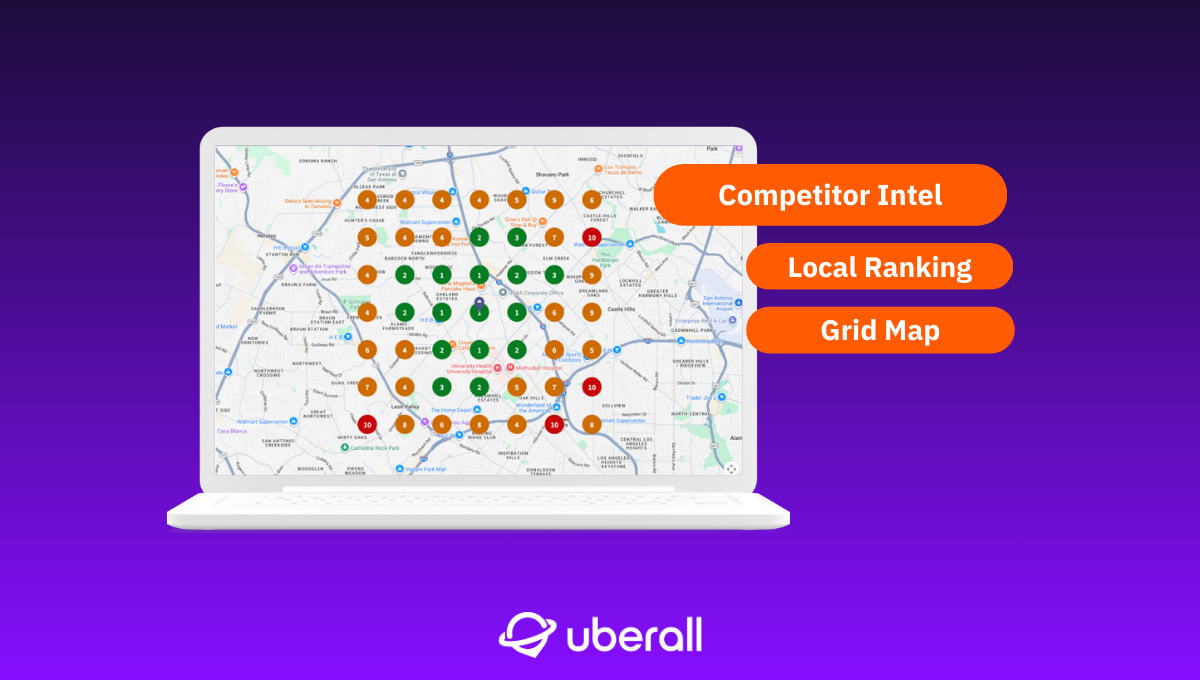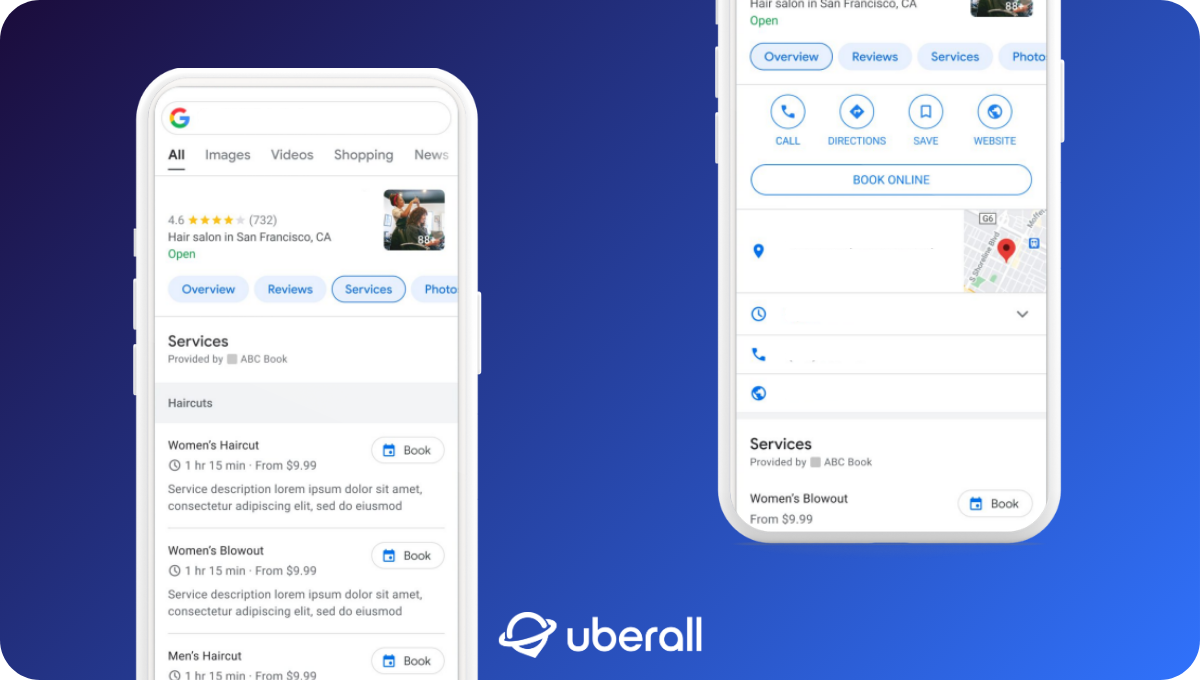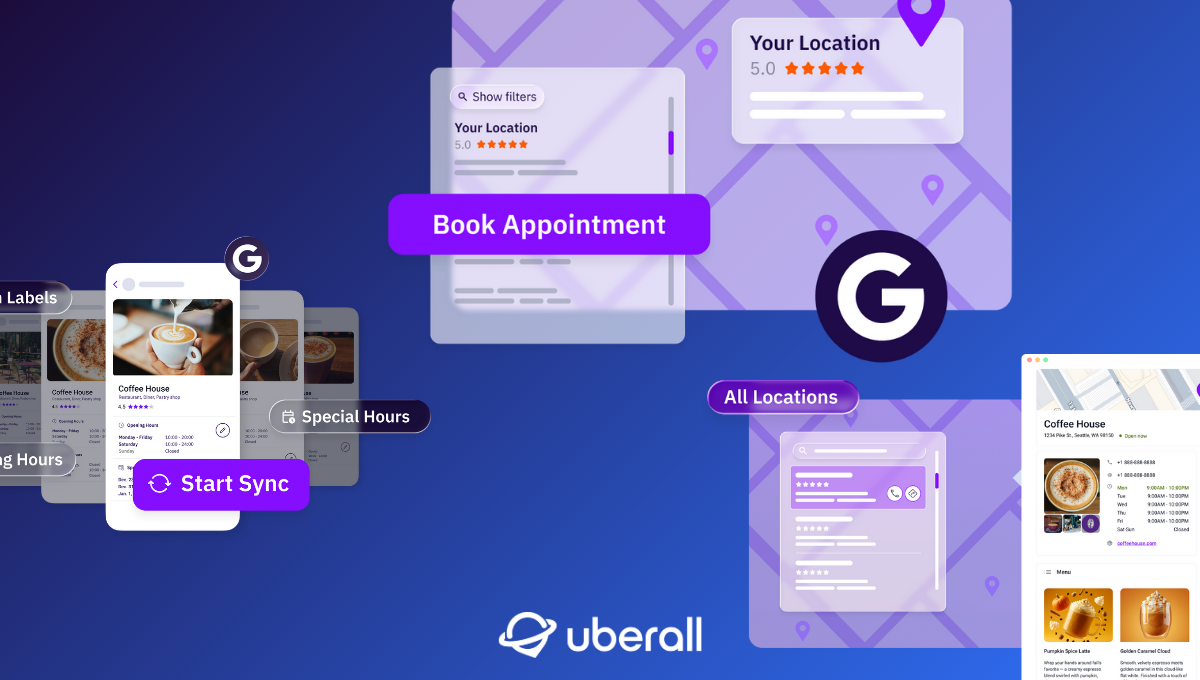
The Continuous Log of Google Search Changes
As Google continually refines its search algorithms, we keep you up to date about the latest developments and nuances with this dynamic resource.
Over the years, Google has continually refined its search algorithms, ushering in a new era of SEO strategies. Staying abreast of Google's search engine major updates is not merely advantageous—it's essential for businesses striving to maintain relevance and visibility in today's competitive online landscape.
As a continuous log of SERP changes, this blog article will serve as a dynamic resource, regularly updated to reflect the latest developments and nuances in Google's search algorithms, ensuring you stay informed about the ever-evolving landscape of SEO.
Google’s Algorithm Tweaks from 2011-2024
Before diving into recent changes, we'll take a chronological journey through significant Google algorithm updates from 2011 to 2024 to understand their impact on search engine optimization.
2011: Panda
The Panda update marked a pivotal moment in SEO history, diminishing the visibility of low-quality and thin spammy pages—better known as 'content farms'—for the benefit of unique, high-quality, and relevant sites on search engine results pages (SERPs).
2012: Venice
Venice revolutionized the local search landscape by delivering more localized results, and leveraging more local search data. This update enabled Google to identify local user intent, which remains the groundwork for the growth of local businesses up until today.
2012: Penguin
The Penguin update targeted web spam and black hat SEO tactics, penalizing poor linking strategies, keyword stuffing, and cloaking. Paid backlinks were particularly scrutinized, emphasizing the importance of organic and high-quality backlink profiles.
2013: Hummingbird
Hummingbird enabled complex searches, including long tail keywords and conversational queries, for Google to identify the most relevant search results for each query. This google update enhanced contextual understanding, providing users with more precise and relevant search results.
2014: Pigeon
Building upon Venice, the Pigeon update refined local searches further by emphasizing local signals and improving local search results. Users could now access results closer to their location, enhancing their search experience.
2015: Mobile & RankBrain
The Mobile update emphasized mobile-first indexing, encouraging mobile-friendly websites and prioritizing them in mobile search rankings. This update reflected the increasing importance of mobile optimization in the digital landscape.
RankBrain, Google's machine learning system, aimed to understand search queries better and interpret search intent. It remains one of the most influential ranking factors, ensuring users receive the most relevant answers to their queries.
2018: Mobile & Medic
The next—or next two—Mobile updates officially introduced the ‘mobile-first’ index and made page speed a ranking factor for mobile devices.
The Medic update focused on expertise, authority, and trust (EAT), particularly impacting health, wellness, and finance industries—also known as ‘Your Money, Your Life’ (YMYL) pages.
2019: BERT
The BERT update introduced natural language processing, enabling Google to understand search queries better and interpret wider context and complex searches. This update enhanced search relevance and user experience.
2020: Pandemic Response
In response to the COVID-19 pandemic, Google adapted its search algorithms to prioritize authoritative and up-to-date information related to the pandemic, including health guidelines, safety measures, and updates from reliable sources, to ensure users received accurate and relevant information during this unprecedented global crisis.
2021: Page Experience
The Page Experience update incorporated Core Web Vitals metrics and user experience, emphasizing quick-loading sites and clear navigations in SERPs. This update aimed to enhance user experience across both mobile and desktop platforms.
2022: Helpful Content
The Helpful Content update emphasized user-first content creation, focusing on high-quality and useful content for readers. User experience, usefulness, and content quality became crucial factors in page ranking.
2023: FAQ and How-To Structured Data Update
Google announced a shift in importance for FAQ and how-to structured data, prioritizing authoritative Government and health sites. With no negative impact on existing sites, incorporating FAQ content remains advisable for all businesses.
2024: Generative AI
Google pushed the boundaries of AI in search with the launch of AI Overviews, aiming to provide users with detailed, personalized answers to complex queries. This encourages businesses to optimize for high-quality content that AI can pull into its synthesized responses.
Google Algorithms—what’s to expect?
The confluence of Search Generative Experience (SGE) and the Digital Markets Act (DMA) is leaving a significant imprint, reshaping the landscape of online commerce and regulatory frameworks to redefine how businesses operate and interact within the digital ecosystem.
#1 Google Posts In The Spotlight
Google continues to evolve how Google Posts are surfaced to searchers. The strategic placement on the search engine results page (SERP) not only enhances user experience but also presents businesses with a prime opportunity to capture the attention of potential customers.
Notably, the prominence of these posts within the mobile SERP's 'Nearby Events and Deals' section offers a compelling advantage for businesses, amplifying their visibility beyond the traditional map pack.
#2 Opening Hours As Ranking Factor
Since the November 2023 core update, there has been a noticeable impact on how businesses' operating hours influence their visibility—likely following the rising amount of searches like ‘open near me’ with local intent. It appears that closed businesses may not show up in the local pack, while temporarily closed listings struggle to maintain their ranking.
Even more intriguing, rankings seem to drop significantly, sometimes by as much as 11 spots, just before a business closes for the day. This could be due to a message indicating the impending closure affecting user engagement.
#3 More Review Sites in Preview
Google now showcases a curated selection of reviews when users search for a specific brand. This carousel prominently displays a maximum of three reviews, each accompanied by their respective text snippets.
When clicking on the button "View all reviews", Google triggers a new search for "Name of the listing" + "Reviews" in a new window, listing organic website results as well actual reviews. Interestingly, these reviews may not solely originate from Google's own platform but can also include reviews sourced from other directories such as NiceLocal, GoLocal, and Yellow Pages. Our data shows that especially Yelp benefits greatly from this google update, ever growing organically on search throughout 2023. Even first party reviews from your own site will show on GBP if you mark them up with Schema.
This enhancement aims to provide users with a comprehensive overview of a brand's reputation across various platforms, facilitating more informed decision-making.
#4 Place Sites
Traditional SERP features like the Google 3-Pack, showing a map, or carousels with product listings positioned at the top of the page are becoming less prevalent in the EU, due to the above mentioned DMA.
Instead, users are more likely to encounter a section labeled "place sites," showcasing alternative business directory website results. Additionally, product carousels may be pushed further down in the search results, sometimes appearing after up to three website listings.
#5 AI in Google Maps
Besides SGE, Google is further experimenting with AI in Google Maps, introducing a feature to help users discover new places. It is currently available to selected Local Guides in the U.S. as an early access experiment
#6 GBP Custom Services
Google is adding custom services to the Google Business Profile, which can positively impact a business’ ranking, albeit to a lesser degree than predefined services. Emphasizing these custom services with emojis can further enhance visibility and justifications, even without specifying price or service descriptions.
#7 New Spam Policies
In March 2024, Google announced “more complex update than our usual core updates”, focusing on the relevance of search results and quality of content. This is likely a reaction to the rise of AI-generated content—to combat content that provides little to no value to users.
Specifically, Google targets three new spam policies against bad practices they’ve seen grow in popularity:
- Expired Domain Abuse: when an expired domain name is purchased and repurposed to manipulate search rankings.
- Scaled Content Abuse: when many pages are generated for the primary purpose of manipulating search rankings.
- Site Reputation Abuse: when third-party pages are published with little or no first-party oversight or involvement to take advantage of the first-party site's ranking
Generally, website owners are advised to focus on creating high-quality content and avoiding manipulative SEO tactics.
#8 Provider Removal for Restaurant GBP
Google has just added the ability to ‘Request Removal of a Delivery Provider’ directly on GBP; which has been one of the biggest complaints within the (local) restaurant industry. Providers then have to remove third-party links within 5 days.
By the way, you can also set a preferred provider to show up as ‘Preferred by Business’
#9 Website Links on Hotel Profiles
Google is adding direct website links in the local results for restaurants and hotels; in addition to the typical button call-to-actions (below in blue) that feature ‘Website’ as well.
#10 Distinguished Bookable and Additional Services
Google separates the services listed on the Google Business Profile in two separate columns during mobile searches: bookable services have a ‘book’ CTA button right next to it while additional services feature the standard service selection.
#11 Review Recency as Ranking Factor
Studies show that a steady influx of new reviews leads to better rankings—so review recency has definitely become a relevant ranking factor. And while you can't incentivize customers to leave reviews, you can definitely incentivize your staff to encourage reviews.
#12 N-E-A-T-T
Search Engine Land just highlighted two overlooked aspects of Google’s E-A-T (Expertise, Authoritativeness, Trustworthiness) concept: notability (N) and transparency (T). These additional elements emphasize the recognition and impact of entities within specific fields (notability) and the importance of openness and honesty regarding content or business origin (transparency).
Integrating N and T into digital strategies alongside E-A-T enhances credibility with both users and Google's algorithms, contributing to improved online presence and search rankings.
#13 Google Short Videos
Google is experimenting with a new 'Short Videos' menu on mobile, guiding users to a feed of brief videos from platforms like YouTube, TikTok, and Instagram. This trial comes after Google introduced 'Forums' in place of 'Perspectives' in the US, ongoing tests of 'Web Results', and default displays of 'Products' and 'Product Sites' in the UK.
#14 Missing Google Maps Widget in Google Search
When you look up an address on Google (in Europe), you can no longer directly click on the Google Maps widget. Instead, you must open Google Maps separately and input the address there. This is due to the Digital Market Act—an EU regulation that came into force on March 6, 2024, to ensure fair and competitive online trade. Meaning: Google isn't longer allowed to give its own products, like Google Maps or Google Flights, preferential SERP placement.
#15 Links Are Becoming Less Important
During a recent search conference in Bulgaria, Google's Gary Illyes mentioned that Google has diminished the importance of links for search rankings. The reduced reliance can be attributed to the advanced AI and natural language processing capabilities integrated into their algorithms.
#16 Flight Search Results Based on Price and Page Speed
For queries related to flights, Google screens online travel agencies’ (OTAs) and airlines’ websites to insert the lowest price directly on the results page—and clicking on a result brings users directly to the provider’s page.
This change benefits the organic result that shows the lowest price in the shortest time—which in most cases stem from Google (because it’s meta search) and airlines (because of instant results). OTAs, on the other hand, can only win if they improve search speed to compete.
#17 SGE = AI Overviews is Live
Announced at Google I/O 2024, the Search Generative Experience has officially launched as 'AI Overview',marking a significant milestone in the evolution of search technology. Incorporating Google's advanced Gemini models, it utilizes generative AI to dynamically generate search results, providing users with tailored information and streamlined experiences across various search queries.
#18 Google Search Leak
In May 2024, a significant leak of Google’s internal search engine ranking documents revealed detailed information about the factors influencing search results. Over 2,500 pages of API documentation from Google's internal Content API Warehouse were inadvertently made public, exposing more than 14,000 attributes related to Google’s ranking system. The documents suggest that Google may use data types, such as clicks and Chrome user data, that the company previously claimed did not impact search rankings.
We’re glad to see, though, that our list of the most important ranking factors is highly accurate.
#19 Reactions to Photos and Reviews on Google Maps
Users can now react to photos on Google Maps, as well as reviews, enhancing customer engagement and providing businesses with valuable feedback on their visual content.
#20 Deprecated GBP Chat
Starting July 31, 2024, the chat feature in Google Business Profile will be discontinued. Customers will still be able to find and contact your business via Google Search and Maps, and access additional information through your website links, business description, photos, and other shared details on your profile.
#21 New Local Ranking Factors
There's evidence of two new local ranking factors: accurate menu descriptions and higher traffic during peak times enhance visibility and improve search engine performance; so optimizing menu items on your Google Business Profile and leveraging the Popular Times graph can significantly boost your local SEO rankings.
#22 New Spam Update
Google has announced new spam updates to its search algorithms aimed at combating low-quality content and deceptive practices, thereby improving search result relevance and user experience. These updates target various forms of spam, including keyword stuffing and scraped content, to maintain the quality of search results.
#23 Zero-Click Searches
More than half of Google searches in the United States result in no clicks to other content, indicating users find answers directly within Google's interface. This trend highlights Google's growing dominance in providing immediate information without users needing to visit other websites.
#24 SearchGPT
The newly launched AI-driven search engine by OpenAI is set to compete with Google by providing more nuanced and contextually accurate search results. This innovation represents a significant shift in the search market, offering users an alternative to the established leader in online search.
#25 No EXIF Data Usage
Google confirmed that it doesn't use EXIF data for ranking, but still processes the data and retains the right to use it for image-related purposes, such as improving search features and image recognition.
#26 Fake Engagement Policy
Google enforces restrictions on Google Business Profiles that violate its fake engagement policy, such as blocking new reviews, unpublishing existing ones, or displaying warnings about fake reviews. Business owners will be notified via email if restrictions are applied, and they can submit an appeal for re-review if they believe the decision was incorrect.

These restrictions will begin rolling out in the UK soon, then potentially other regions—and the FTC has finalized its ruling on reviews and testimonials, too.
#27 Removed Cache Links
Google has removed the "Google Cache" link from search results, which previously allowed users and SEOs to access archived versions of web pages. This change may impact how webmasters troubleshoot website issues or track updates over time—and as of now, Google has not provided an official alternative for accessing cached pages.
#28 Updated Spam Policies
In September, Google again updated its web search spam policies, strengthening its stance against deceptive practices such as clickbait, fake content, and malicious behavior. The update aims to provide users with more relevant, trustworthy search results by filtering out low-quality or harmful content.
#29 File To Ask About A File
Google has introduced a new "Ask anything about a file" feature in Search, allowing users to upload documents and receive AI-driven insights or answers directly. This underscores Google's continued integration of generative AI to improve user interactions and access to information.
#30 Social Media Links on GBP
Google started emailing GBP owners with a prompt to add social media links to their profiles. As noted in recent observations, Google also appears to be actively highlighting businesses that frequently update their profiles. This aligns with Google's push for dynamic and engaging content to improve visibility and user interaction on Google Business Profiles.

#31 Google's New AI 'Ask Maps'
Google is introducing a new AI-driven "Ask Maps" feature to Google Business Profiles (GBP), powered by Gemini AI, which allows users to ask detailed questions about businesses directly within the Google Maps app.

The feature, currently limited to U.S.-based locations, appears to be replacing the traditional Google Q&A. It prioritizes data from GBP, business websites, and trusted external sources to provide more accurate responses.
Businesses are advised to optimize their GBP, website content, reviews, and imagery to align with this shift, as it enhances AI responses and maintains visibility. However, the feature's rollout in Europe may face delays due to regulatory concerns.
#32 Chat integration with SMS and WhatsApp
Google Business Profiles has introduced chat integration with SMS and WhatsApp for businesses in the United States, allowing customers to contact businesses directly through these platforms. This feature enables businesses to enhance customer communication by providing convenient messaging options.
Conclusion
As we look back on the trajectory of Google's algorithm updates spanning from 2011 to 2024, it's evident that the search engine giant continues to prioritize user experience, relevance, and trustworthiness. From combating spammy content to enhancing semantic understanding, each algorithm tweak has been geared towards refining search results and improving user satisfaction.
Looking ahead, the SGE and DMA will undoubtedly shape the future of online commerce and digital interaction. Amidst these changes, businesses must remain vigilant, adapting their SEO strategies to align with Google's evolving algorithms and providing users with valuable, user-centric content and experiences.
Our advice: bookmark this blog article, because we’ll be updating it regularly—and reach out to the Uberall team to learn more about local SEO.
Ready to Transform Your Business?
Connect with our partnership team to learn how Uberall can help you achieve similar results. Get a personalized consultation and discover the opportunities waiting for your business.
Resources





